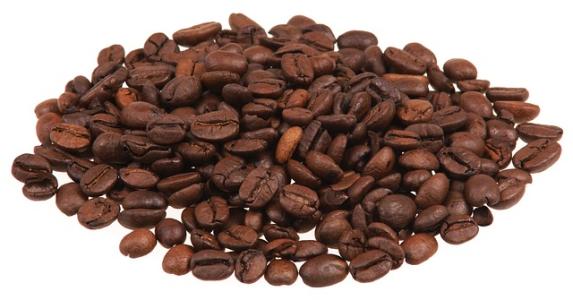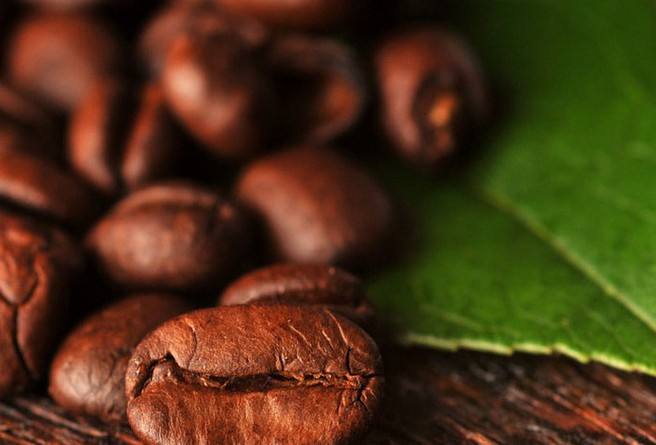Introduction of Brazilian Coffee Sinio, Overview of Brazilian Coffee production
Follow the caf é (Wechat official account vdailycom) and found that Beautiful Cafe opened a small shop of its own.
"Coffee cafezinho" is Brazil's favorite small cup of strong black coffee. In Brazil, buying you a cup of coffee is a habit and an important etiquette for hospitality, just like Chinese tea. Brazil is the world's largest coffee producer, known as the "coffee kingdom". It is said that the first person to discover coffee was an old shepherd in the Kafa region of Ethiopia. Because his sheep were particularly excited and active after eating a kind of red berries in the bushes, he was surprised that he also ate a few of them. I was so excited that coffee came out.

The French first transplanted the plant to French Guiana and then extended it to other places. It was not until the 18th century that Brazil, desperate for coffee seeds, did everything possible to get some mature coffee beans and five coffee saplings from Guyana, and it was the reproduction of these seeds and seedlings that made Brazil's dream of a "coffee kingdom" come true. At that time in Europe, coffee drinking has developed from a unique enjoyment of the aristocracy to the popularity of ordinary people, and the market demand has greatly increased. The soil and climate of several states in Brazil are particularly suitable for growing coffee, so coffee cultivation is growing rapidly and expanding to the southwest.
According to statistics, between 1820 and 1840, coffee production in Brazil increased by 206%, which is much higher than that in other parts of the world. For example, between 1825 and 1850, world coffee production increased three times, while Brazil increased five times. It has become the world's first coffee producer and exporter, and coffee cultivation has also become a new pillar of the Brazilian economy. Until 1960, coffee exports still accounted for 56.2% of its foreign exchange earnings. Since then, Brazil has experienced great economic development, and coffee exports still accounted for 13.8% of its total exports in 1980. No wonder Brazilians call it "green gold". When we lived in Brazil, we were invited to spend the weekend on a coffee plantation. The host accompanied us into the green coffee garden, and at a glance, the coffee trees were lined up horizontally and vertically, neatly, a bit like a Chinese tea garden, except that the coffee tree was taller than the tea tree and could grow to about 3 meters. The oval leaves were opposite, and the axils of the leaves were covered with cyan fruit. The master said that in May-June, the ripe fruit would turn red, and it would be time to harvest coffee beans. Then I visited the coffee processing process, which requires superb expertise.
Brazilians love coffee and are good at drinking coffee. Coffee with hot milk is a traditional breakfast drink throughout Brazil. Brazilians call breakfast "morning coffee" (cafe damanha). They drink coffee before going to work, during meetings, and often stand in front of a street cafe for a drink when walking down the street. In short, coffee is an indispensable source of energy for most Brazilians. Small black coffee, dark color, strong flavor, mellow and delicious, it is best to add a little more sugar, as the Brazilian folk song sings: "Coffee must be as black as the devil, as hot as hell, as pure as an angel, as sweet as love." When you arrive in Brazil, don't forget to taste the delicious "Coffee Sinio"!
Important Notice :
前街咖啡 FrontStreet Coffee has moved to new addredd:
FrontStreet Coffee Address: 315,Donghua East Road,GuangZhou
Tel:020 38364473
- Prev

A brief introduction to the flavor of coffee beans in Dateira Manor, Brazil
Following Cafe Review (Wechat official account vdailycom) found that Brazilian Coffee has opened a small shop of its own to interpret soft bean aesthetics in five levels, in the following order: Strictly Soft, Soft, Softish, Hardish, Rioy. In other words, Brazilian beans do not emphasize the lively, sour, rhythmic and transparent characteristics of hard beans.
- Next

Introduction to the origin of taste and flavor of Kenya coffee
Pay close attention to coffee comment (Weixin Official Accounts vdailycom ) and find that a beautiful coffee shop opens its own shop. Kenyan coffee mostly grows at an altitude of 1500- 2100 meters and is harvested twice a year. Its main characteristic is the distinct fruit fragrance, the common fruit fragrance is citrus. Kenyan coffee has layered flavors and acidity of juice, perfect grapefruit and wine flavors,
Related
- Detailed explanation of Jadeite planting Land in Panamanian Jadeite Manor introduction to the grading system of Jadeite competitive bidding, Red bid, Green bid and Rose Summer
- Story of Coffee planting in Brenka region of Costa Rica Stonehenge Manor anaerobic heavy honey treatment of flavor mouth
- What's on the barrel of Blue Mountain Coffee beans?
- Can American coffee also pull flowers? How to use hot American style to pull out a good-looking pattern?
- Can you make a cold extract with coffee beans? What is the right proportion for cold-extracted coffee formula?
- Indonesian PWN Gold Mandrine Coffee Origin Features Flavor How to Chong? Mandolin coffee is American.
- A brief introduction to the flavor characteristics of Brazilian yellow bourbon coffee beans
- What is the effect of different water quality on the flavor of cold-extracted coffee? What kind of water is best for brewing coffee?
- Why do you think of Rose Summer whenever you mention Panamanian coffee?
- Introduction to the characteristics of authentic blue mountain coffee bean producing areas? What is the CIB Coffee Authority in Jamaica?

